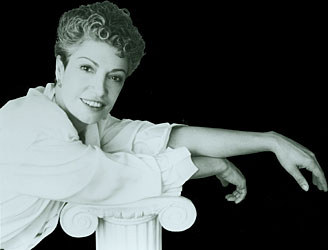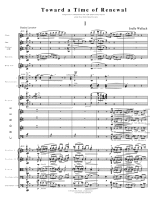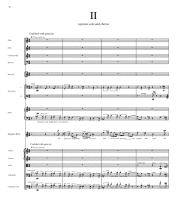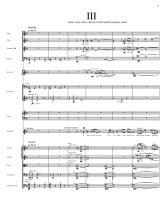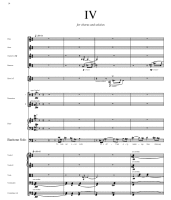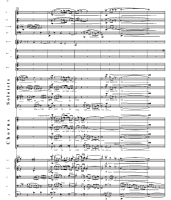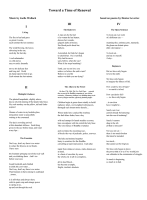Toward a Time of Renewal [21']
II and III from Toward a Time of Renewal
Toward a Time of Renewal is a four movement work for large chorus, four solo voices and orchestra, commissioned by the New York Choral Society to commemorate their 35th Anniversary Season. The text is based on nine poems by poet Denise Levertov centered on man’s responsibility for the husbandry of the earth. As is typical of Wallach’s vocal music, Toward a Time of Renewal explores the text’s psychological drama while using the rhythms and cadences of normal speech.
The melodic lines range from a delicate lyricism to abrasive intensity, the textures from stark to lush, chordal to contrapuntal. The first movement’s soaring choral motive signals a warning that reappears throughout the course of the piece. The orchestra concludes the movement with a pensive instrumental theme played by the solo horn. Begun without a pause, the second movement opens with a soprano solo. Her intimate song continues above an increasingly lively contrasting theme in the chorus. The third movement opens with a tenor’s narration of a physically abusive personal relationship. The chorus responds with a harrowing, almost grotesque fughetto connecting those intimate atrocities to more public political and military ones. The music, drawing on Southeast Asian modalities and driving rhythms, evokes the urgency of crippled Vietnamese children as they build altars on Saigon streetcorners to halt the traffic of war. Car horns and other street sounds are depicted without ever being literally quoted. After a brief baritone prologue, the fourth movement begins a dialogue between the solo quartet and the chorus. They sing about aspirations and beginnings. Yet the first movement’s theme of possible failure and loss looms over a new, if related, song of opportunity and hope.
